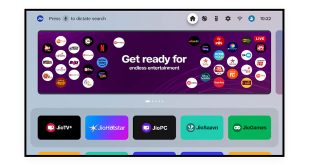Discover Bitchat, Jack Dorsey’s groundbreaking messaging app that enables communication without internet access, using peer-to-peer technology. Learn how this innovation could transform connectivity worldwide.
In an era dominated by constant internet connectivity, Jack Dorsey, co-founder of Twitter and Square, has introduced Bitchat, a novel messaging application designed to operate without the need for an internet connection. This pioneering app leverages peer-to-peer technology to facilitate seamless communication even in areas with limited or no internet access. As global reliance on digital communication grows, Bitchat promises to redefine how people stay connected, especially in remote or infrastructure-challenged regions.
What is Bitchat?
Bitchat is a decentralized messaging platform that enables users to send and receive messages without relying on cellular data or Wi-Fi. Instead, it uses Bluetooth and Wi-Fi Direct to establish direct connections between devices, creating a mesh network where messages hop from one device to another until they reach their destination. This approach bypasses traditional internet service providers and mobile networks, allowing communication in real-time even in offline environments.
How Does Bitchat Work?
The app creates a peer-to-peer network by connecting nearby smartphones, which then relay messages across the network until they reach the intended recipient. This method is particularly useful in scenarios where internet infrastructure is compromised or unavailable, such as during natural disasters, in rural areas, or in places with strict internet censorship.
Bitchat’s architecture is designed to be secure and private. Messages are encrypted end-to-end, ensuring that only the sender and receiver can access the content. Additionally, the decentralized nature of the network reduces the risk of centralized data breaches and surveillance.
Potential Impact and Use Cases
Bitchat’s offline messaging capability has significant implications for both everyday users and emergency responders:
- Disaster Relief: During natural calamities when internet and cellular networks are often disrupted, Bitchat can provide a vital communication lifeline for affected communities and rescue teams.
- Remote Areas: In regions with poor or no internet connectivity, Bitchat offers a practical solution for residents to stay in touch without incurring high data costs.
- Privacy-Conscious Users: The app’s decentralized and encrypted design appeals to users concerned about data privacy and surveillance.
- Censorship Circumvention: In countries with restricted internet access, Bitchat can enable free communication by circumventing traditional network controls.
Challenges and Limitations
While Bitchat introduces exciting possibilities, it also faces challenges:
- Range Limitations: The effectiveness of the mesh network depends on the density of users within Bluetooth or Wi-Fi range, which may limit message delivery speed and reach in sparsely populated areas.
- Battery Consumption: Continuous use of Bluetooth and Wi-Fi Direct can drain device batteries faster than typical messaging apps.
- User Adoption: For the mesh network to be effective, widespread adoption is necessary, which requires robust marketing and user education.
Expert Opinions
Technology analyst Priya Nair remarks, “Bitchat represents a significant step toward democratizing communication by reducing dependency on centralized infrastructure. Its success, however, will hinge on its ability to scale and maintain user trust through privacy and reliability.”
Jack Dorsey himself has emphasized the app’s mission to “empower people to communicate freely and securely, regardless of their internet situation,” highlighting the social impact potential of this innovation.
Conclusion
Jack Dorsey’s Bitchat is poised to disrupt traditional messaging paradigms by enabling internet-free communication through innovative peer-to-peer technology. As the world grapples with connectivity disparities and privacy concerns, Bitchat offers a promising alternative that could bridge communication gaps globally. While challenges remain, the app’s launch marks a compelling advancement in the evolution of digital communication.
 Digital Tech Byte Latest Technology News
Digital Tech Byte Latest Technology News





